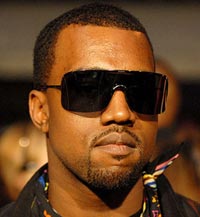By Gareth Higgins
The Sundance film festival is in full swing, with the quaint and cold streets of tiny Park City, Utah swarming with movie fans, celebrities, and entertainment lawyers. Sundance is the world’s best known festival of independent film, and every year the industry’s representatives flock to Robert Redford’s personal movie club in hopes of discovering the next “Sex Lies, and Videotape,” “Reservoir Dogs,” or “Little Miss Sunshine.” The festival has often been a magnet for political film-makers, and questions of spirituality are also never far from the surface.
This year, the festival has featured films that search for truth in questions of reconciliation and justice in violent conflict (Liam Neeson in the Northern Irish “Troubles,” drama “Five Minutes of Heaven,” and the documentary about sexual abuse recovery in South Africa, “Rough Aunties”), mismatched relationships (animated lonely pen pals story “Mary and Max”–see below–, and “I Love you Philip Morris” – Jim Carrey’s coming out drama), individual responses to climate change (“No Impact Man”), the corrosion of long-standing feelings of vengeance (the boxing documentary “Thriller in Manila”), and the very existence of the soul (Japanese existentialism in “The Clone Returns Home” and Paul Giamatti sells himself in “Cold Souls”)
The opening night film, “Mary and Max” set the tone with a powerful comic drama about the relationship between an 8-year-old Australian girl and a middle aged male New Yorker with Asperger’s syndrome. It sounds like the perfect Sundance film – boundaries are crossed, people on the margins of society are brought into central focus, easy answers are avoided. But the biggest surprise is that “Mary and Max” is a stop-motion animated film; think “Wallace and Gromit” meets “Rain Man” (and with a story touched with such bleakness, the emphasis is very firmly on the rain). Characters are brought to vivid life by the voices of Philip Seymour Hoffman, Toni Collette, Eric Bana and Barry Humphries; but the magnificent achievement is in the animation, directed by Adam Elliott.
“Mary and Max” doesn’t shy away from the challenges of being lonely–either because of the frequently nasty terrain of childhood, or of having special needs in a world that doesn’t respect you. There’s a knowing glance at how our vulnerabilities are what so often unite us; and the fully rounded Mary and Max evoke both empathy and, let’s hope, inspiration to be more attentive to the unknown challenges even our next door neighbors may be facing.
This is the film that I hope will be the breakout hit from Sundance 2009 – it’s one of the best animated movies I’ve ever seen; and a seriously entertaining film for adults.
Gareth Higgins is a northern Irish writer, speaker and activist, now resident in North Carolina; he wrote the book “How Movies Helped Save My Soul: Finding Spiritual Fingerprints in Culturally Significant Films,” and co-presents the Film Talk podcast with Jett Loe at The Film Talk.
More from Beliefnet and our partners


